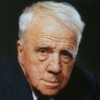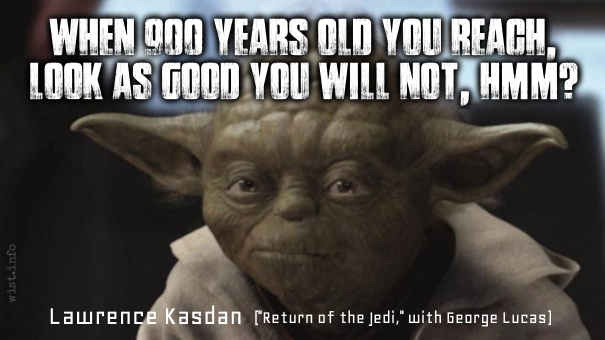When I would send such trifles as I can;
You stop me short; you arbitrary man!
But I submit. Both may our orders give;
And do what both like best: let me receive.[Natali tibi, Quinte, tuo dare parva volebam
Munera; tu prohibes: inperiosus homo es.
Parendum est monitis, fiat quod uterque volemus
Et quod utrumque iuvat: tu mihi, Quinte, dato.]Martial (AD c.39-c.103) Spanish Roman poet, satirist, epigrammatist [Marcus Valerius Martialis]
Epigrams [Epigrammata], Book 9, epigram 53 (9.53) (AD 94) [tr. Hay (1755), ep. 54]
(Source)
(Source (Latin)). Alternate translations:
On your birth-day, Quintus, I wished to make you a small present: you forbade me; you are imperious. I must obey your injunction: let that be done which we both desire, and which will please us both. Do you, Quintus, make me a present.
[tr. Bohn's Classical (1897)]
Your birthday I wished to observe with a gift;
Your forbade and your firmness is known.
Every man to his taste:
I remark with some haste,
May the Third is the date of my own.
[tr. Nixon (1911)]
On your birthday, Quintus, I was wishing to give you a small present; you must forbid me; you are an imperious person! I must obey your monition. Let be done what both of us wish, and what pleases both. Do you, Quintus, make me a present!
[tr. Ker (1919), Ep. 53]
I wished to send you for your birthday
A gift, a small thing really.
But you said, "No, I want no gift,"
And meant it most sincerely.
Let both our wishes be esteemed.
Why invite a rift
Between us? When my birthday comes,
Please send me a gift.
[tr. Marcellino (1968)]
I wished to give you a trifling birthday present, Quintus. You forbid it. you are an imperious fellow; I must obey your admonition. Let it be as both of us will wish, as gives both of us pleasure: you give me something, Quintus.
[tr. Shackleton Bailey (1993)]
Quotations about:
birthday
Note not all quotations have been tagged, so Search may find additional quotes on this topic.
Believing hear, what you deserve to hear:
Your birthday as my own to me is dear.
Blest and distinguished days! which we should prize
The first, the kindest bounty of the skies.
But yours gives most; for mine did only lend
Me to the world; yours gave to me a friend.[Si credis mini, Quinte, quot mereris,
natalis, Ovidi, tuas Aprilis
ut nostras amo Martias Kalendas
felix utraque lux diesque nobis
signandi melioribus lapillis!
hic vitam tribuit set hic amicum
pus dant, Quinte, mini tuae Kalendae.]Martial (AD c.39-c.103) Spanish Roman poet, satirist, epigrammatist [Marcus Valerius Martialis]
Epigrams [Epigrammata], Book 9, epigram 52 (9.52) (AD 94) [tr. Hay (1755)]
(Source)
To the poet Ovid. Original Latin. Alternate translations:
What thou deserv'st, if thou beleeve,
I do to Aprils Calends give
For thy birth, Ovid, what I doe
To March, to which mine own I owe.
Both happy dayes, with whitest stone
Both to bee mark'd by me; by one
A friend: by tother life I have.
The greater gift thy Calends gave.
[tr. May (1629), 9.53]
If you but believe me, Quintus Ovidius, I love, as you deserve, the first of April, your natal day, as much as I love my own first of March. Happy is either morn! and may both days be marked by us with the whitest of stones! The one gave me life, but the other a friend. Yours, Quintus, gave me more than my own.
[tr. Bohn's Classical (1859)]
Ovid, as your deserts are high,
Know that our natal mornings I
Keep with a like fidelity;
How blest the light
Of those twin days we mark with white!
Mine gave me life, but yours a friend,
And that's the gift I more commend.
[tr. Street (1907)]
If you believe me, Quintus Ovidius, the kalends of your natal April I love -- 'tis your desert -- as much as my own of March. Happy is either morn! and days are they to be marked by us with fairer stones. One gave me life, but the other a friend. Your kalends, Quintus, gave me the more.
[tr. Ker (1919)]
If you believe me, Quintus Ovidius, I love your birthday Kalends of April as much as my own of March -- you deserve it. Happy both days, days to be marked by me, with superior pebbles. The one gave me life, but the other a friend. Quintus, your Kalends give me more.
[tr. Shackleton Bailey (1993)]
There is still no cure for the common birthday.
John Glenn (1921-2016) American politician and astronaut
Speech, New Concord, Ohio (20 Feb 1997)
(Source)
Announcing his retirement from the U. S. Senate after his next term would expire the next year.
The first fact about the celebration of a birthday is that it is a way of affirming defiantly, and even flamboyantly, that it is a good thing to be alive.
Gilbert Keith Chesterton (1874-1936) English journalist and writer
“Our Birthday,” G. K.’s Weekly (1935-03-21)
(Source)
Yet, when all is said and done, birthdays are mere records of time, not registers of distance. They are chronometers, not speedometers. They tell us how long we have been upon the road, not how far we have travelled.














